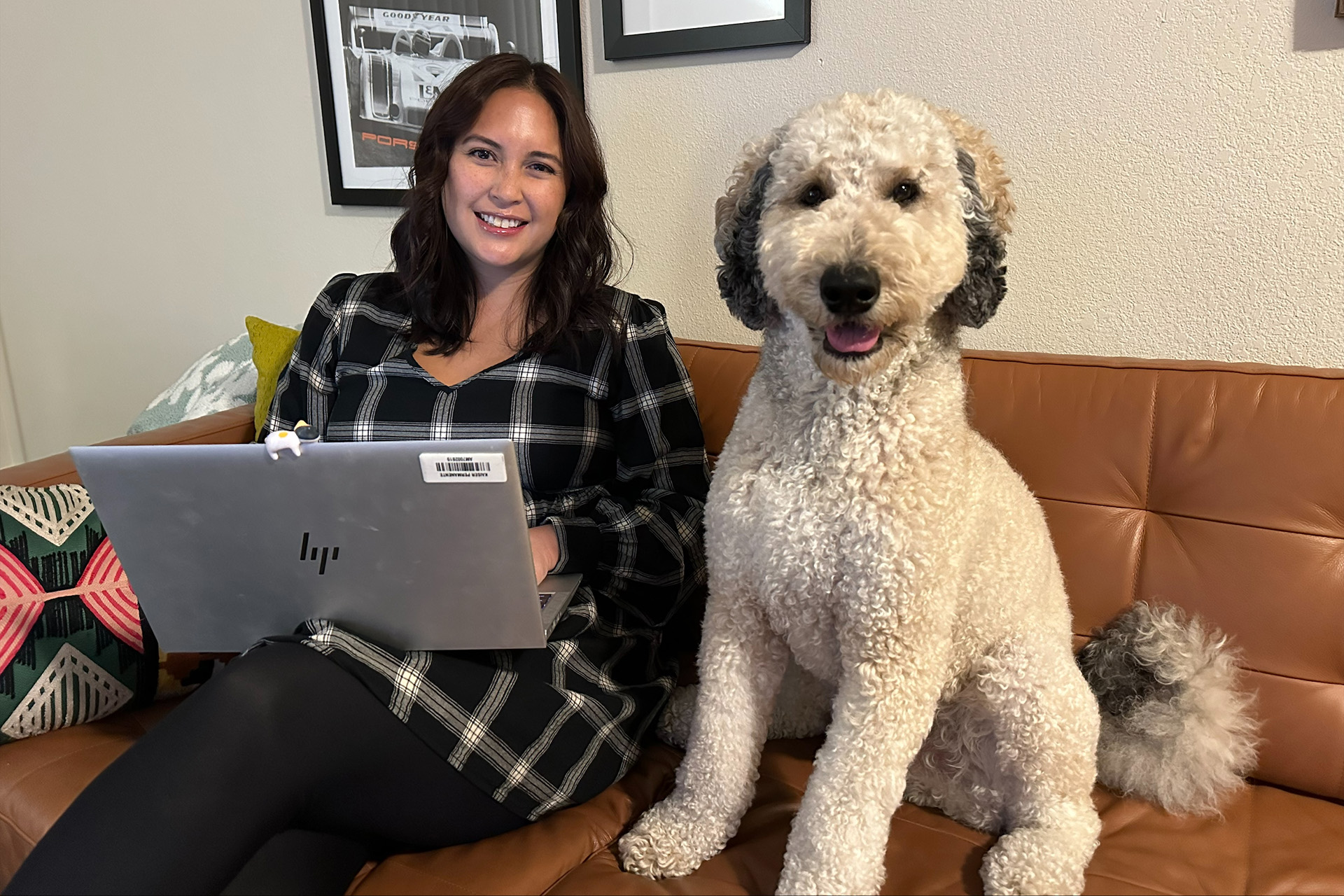A behavioral therapy program teaches skills to Kaiser Permanente Fresno patients dealing with mental health conditions. Pictured, Leah Whitworth and Arthur Murata.
Arthur Murata spent years performing close-up magic, keeping his audiences entertained by making objects quickly disappear.
But there was always one thing in Murata’s life that wouldn’t disappear: his depression.
At 72, Murata says he’s struggled with depression most of his adult life. There were times when he felt unmotivated, lacked energy, and experienced waves of sadness.
Medication helped a little. But Arthur said he only began feeling relief 6 months ago when he enrolled in Kaiser Permanente Fresno’s Dialectical Behavior Therapy (DBT) Program.
“The DBT program has been the most effective,” he said. “It’s really clarified a lot of things for me and organized my thinking. I finally have validation that my feelings are justified, and I know now how to cope with them.”
Learning Coping Skills
Developed in the late 1980s and introduced to psychiatry in 1993 by Psychologist Marsha M. Linehan, dialectical behavior therapy was initially used to treat borderline personality disorder. A type of psychotherapy — or talk therapy — it’s now used in the treatment of other kinds of mental health disorders including depression and anxiety.
Leah Whitworth, a licensed marriage and family therapist and manager in adult psychiatry at Kaiser Permanente Fresno, is passionate about dialectical behavior therapy. She’s taught it for the past 20 years and even uses it in her own life.
“DBT is one of the most rigorously researched, evidence-based programs,” she said. “We’ve seen really impressive outcomes at Kaiser Permanente Fresno with the patients who have completed the 6-month skills class.”
Kaiser Permanente Fresno’s DBT program is an outpatient therapy program that provides patients with a structured team approach to treatment consisting of individual therapy sessions, weekly skills classes, and phone or e-mail coaching with a therapist.
Patients spend 6 months in the weekly skills classes learning coping skills to help with their mental health issues.
Each class begins with the ringing of a Tibetan singing bowl 3 times. Then the class participates in a mindfulness exercise and reviews the previous week’s skills knowledge. Afterward, the class discusses 1 of 4 modules: Mindfulness, Distress Tolerance, Emotion Regulation, and Interpersonal Effectiveness. Each module teaches patients different coping skills.
Patients have homework each week and can call or e-mail their therapist for additional support.
The support extends to the therapists involved in the DBT program as well, Whitworth said. The DBT team therapists meet once a week for ongoing training and provide encouragement to one another.
The number of providers involved in the program has grown from 10 to 17, Whitworth said. The success of the program has improved staff morale because of the peer-to-peer support, cohesiveness of the team, and the impact it’s having on patients, she said.
Murata says he’s learned so much from the skills classes that he’s done his own research into DBT.
“The tools they give you are adaptable to your everyday life,” he said. “There’s constant reinforcement of the old skills you’ve learned as you are introduced to new ones that can really help you.”
Bouncing Back Stronger
Kaiser Permanente Fresno’s DBT program has seen tremendous growth since it first began in October 2017. It’s currently the only comprehensive DBT program offered in the Northern California region, although there are plans to expand it to other service areas.
The program at Kaiser Permanente Fresno started with 20 patients in 2 classes. Now there are nearly 140 patients in 7 classes. Whitworth said the program has grown because of more referrals from primary-care physicians and word of mouth. Whitworth said she even gets calls from non-Kaiser Permanente members asking if they can enroll in the program.
The success has prompted Whitworth to expand the program even further. She plans to develop an advanced 16-week DBT course for patients who have completed 2 rounds of the 6-month therapy program. She hopes to have the advance course running by the end of 2019.
Murata is one of the program’s success stories. Whitworth says she vividly remembers his demeanor the first day of class last August.
“There was just this heaviness to his face, you could tell he was struggling,” she said.
But now Murata smiles frequently and has become someone others in the class look to for guidance.
“I feel like I’m really improving,” he said. “I know that I’ll bounce back and be stronger. I’m more resilient now.”




